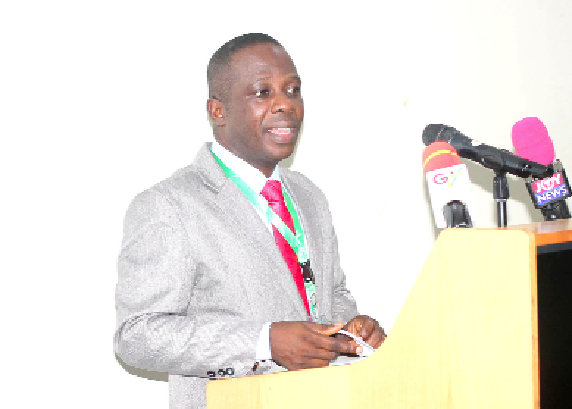Ghana is 70 per cent through producing a local drug, Immunim, that will support the treatment of COVID-19, the Centre for Plant Medicine Research (CPMR) has disclosed.
The head of research and innovations at CPMR, Dr Kofi Donkor, who made this known, said the positive outcome of a pre-clinical research on the product showed that the country would in the next four months have a potential drug that could cure the disease.
Presenting a progress report on the ongoing research project for the development of the herbal drug at the 1st Oku Ampofo memorial conference in Accra yesterday, Dr Donkor said, “The outcome so far has been wonderful.
Dr Donkor said the centre would be through with the project titled, “Collaborative and concerted approach to the development of herbal products against SARS-CoV-2 Virus” being wholly sponsored by the COVID-19 National Trust Fund in the next four months to pave the way for its usage in treating COVID-19.
Bridge Technology Gap
The conference on the theme: “Medicinal Plant Research: Innovation and Prospects in a pandemic era” attracted participants, including scientists from Ghana, Mauritius, Congo, Nigeria, South Africa and the US to deliberate and add value to the initial data from the research project and contribute to the national efforts of finding local products with the potential to cure coronavirus.
The Chairman of the Vaccine Development Committee, Prof. Kwabena Frimpong Boateng, lamented that many people did not see the essence of conducting research adding that it was only through research that such innovations could be discovered.
He said the country needed to preserve its forest not only for the trees or plants but the biodiversity which helped in discovering potential medication for the treatment of diseases.
Prof. Boateng added that the poverty gap in the country was not a natural resource gap but rather technological gap and therefore, the need to invest in technology to bridge the technological gap in order not to find it difficult in doing many things in the various fields, including the health sector.
Support of Trust Fund
The administrator of the COVID-19 National Trust Fund, Dr William Collins Asare, said the research initiative by the centre was a giant step towards finding local solutions for the health problems and that the fund had provided funding support of GH¢1,800,37.00 towards that endeavour.
At the end of August 2022, the Trust Fund, he said, received Ghc62,329,41.98 out of which an amount of Ghc57,226,655.72 had been disbursed to support various projects, programmes and activities and also for administrative purposes.
The interventions had been in the areas of distribution of Personal Protective Equipment (PPE) /other medical supplies, construction or renovation of health infrastructure, medical research, public education and awareness creation regarding COVID-19 and social intervention.
“From its inception in April 2020, a cumulative amount of Ghc22,000,000 has been spent on the purchase and distribution of PPE, including nose masks, thermometer guns, face shields, Veronica buckets, disposable bed sheets”, he said.
The trustees and the secretariat, he said, were intensifying efforts to appeal to the public and corporate bodies to continue to make contributions in cash and in kind to help the trust fund provide all the interventions to support the government combat the pandemic.
A trustee of the COVID-19 National Trust fund, Dr Ernest Ofori Sarpong, noted that a large number of people in developing countries, including Ghana, relied on traditional practitioners and their numerous plant medicines to meet their healthcare needs.
Success of Project
The success of the project, therefore, he said would not only be a breakthrough for Africa, especially Ghana, but also a valuable contribution towards finding local solutions to a global health crisis.
“I am reliably informed that the initial results achieved so far shows very promising signs of positive breakthrough in combating COVID-19”.
The Commercial and Cultural attache to the High Commission of Barbados, Phil Phillips, said CPMR remained Ghana’s best kept secret and therefore could be useful in the country’s desire to position its self as a health tourism centre in Africa.
He gave the assurance that Barbados would help Ghana to develop its potential of becoming a health tourism hub with its rich experience in that regard.

